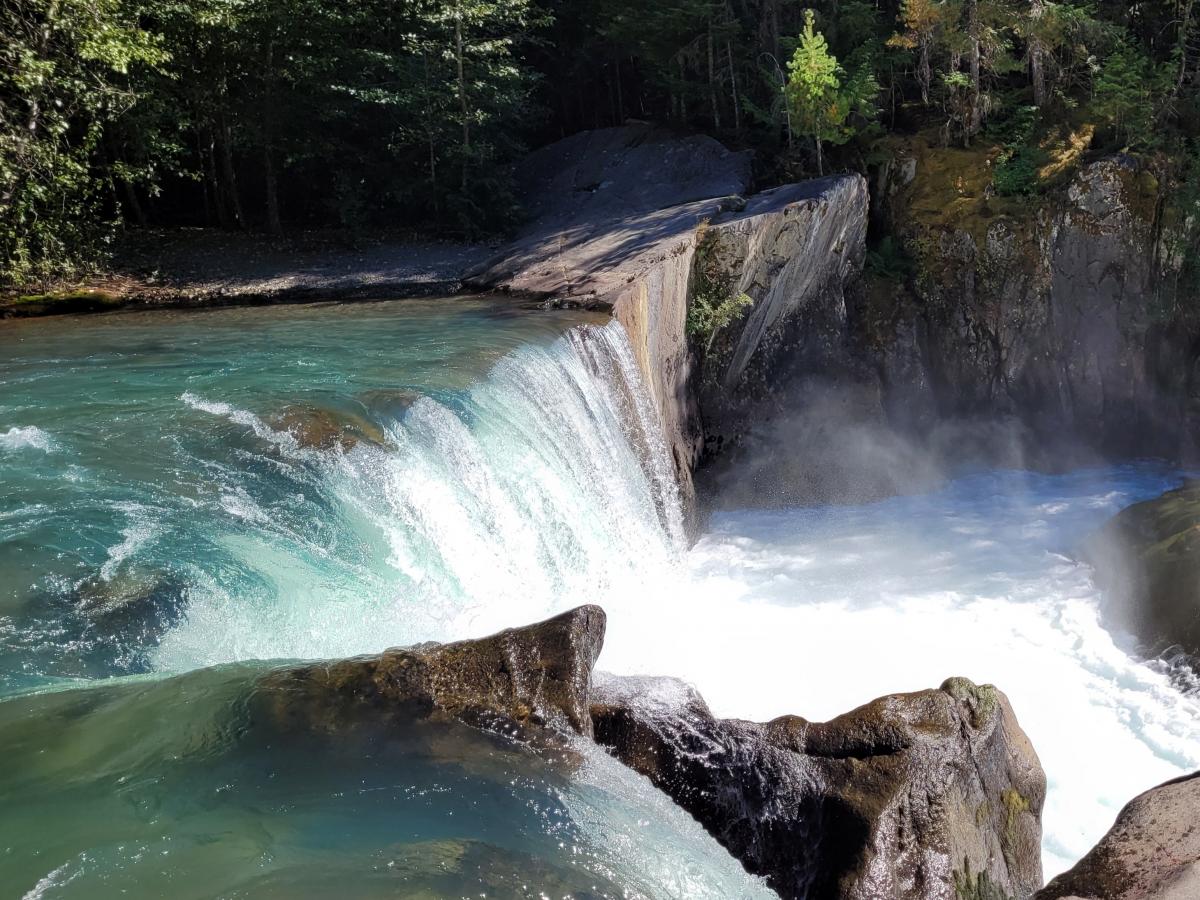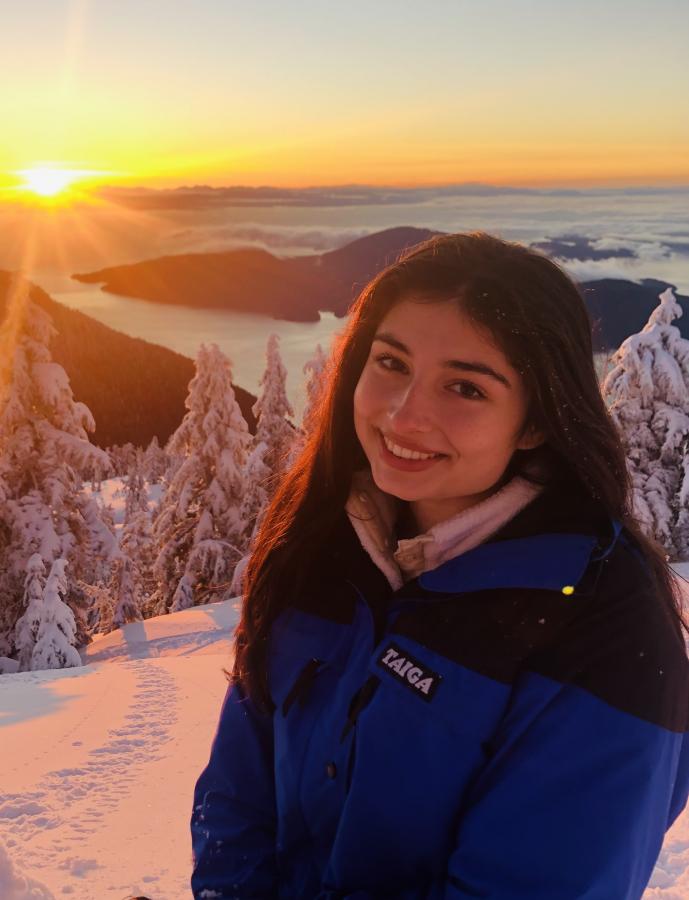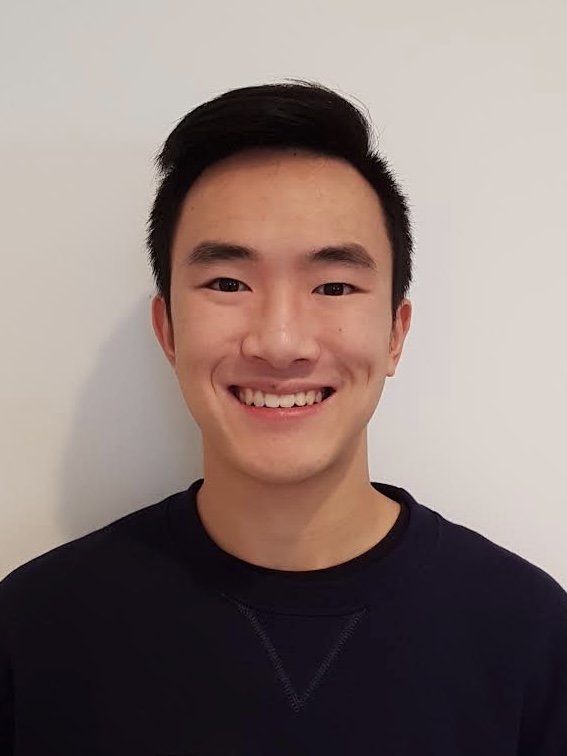This story is one in a series of three profiling UBC students who are presenting projects at the International Conference of Undergraduate Research (ICUR) Sept. 27 to 29. Hosting the in-person and online gathering focused on approaching research from an interdisciplinary perspective are England’s University of Warwick and Monash University in Australia. Students had to apply for approval as a presenter.
Canadians might think that access to clean drinking water is a non-issue in Canada today. Not the case, say UBC undergrads Brianna Ragsdale and Marcus Shew. In fact, many Indigenous communities don’t have safe drinking water — and haven’t for decades. Ragsdale and Shew did a review of the current state of knowledge around Indigenous water. They aim to influence what they call outdated policies in place, as well as raise awareness through their research, which they will present at ICUR.
Originally from Abbotsford, BC, Ragsdale, 19, is a second-year combined science major and Shew, 20, from Vancouver, is in his third year studying biology. Both signed up for a club called Undergraduate Research Opportunity and got paired with mentor Kasey Stirling. Masters student Stirling works with the Institute for the Oceans and Fisheries at UBC, and has a particular interest in Indigenous social justice. The connection between Indigenous peoples and water access emerged, inspiring the two to delve further. We joined a discussion with Ragsdale and Shew about their research project.
What the problem is:
(Marcus) For far too long, too many Indigenous communities in Canada have had poor access to clean drinking water. There are about 71 communities under drinking water advisories — between boil water, do not consume and do not use advisories. We wanted to investigate why inadequate access to clean water, a critical and basic human right, continues to be such a prevalent issue, and to look into solutions.
(Brianna) Colonial era legacies are affecting modern day policies that deny many Indigenous communities access to clean drinking water. Modern systems and institutions in Canada stem from a time when white settlers stole Indigenous land without purchase or treaties. Many policies still in effect were created to subjugate Indigenous peoples. Settlers put Indigenous children in residential schools and told them their way of life was “lesser-than”; all while Western history books were whitewashed to diminish the atrocities committed by settlers. The way we tell history frees settler peoples from worrying about the moral and ethical implications of living in a country founded on genocide, racism and dispossession. I don’t think a lot of people realize how serious an issue this is. To this day, the government is not prioritizing access to clean drinking water for Indigenous communities. Part of the problem is systemic racism in Canada. When we tell people, they’re shocked.
How this research can help:
(Marcus) We worked on creating a research protocol, where we proposed to do a survey of Indigenous communities in provinces with long-term advisories: Ontario, Manitoba and Saskatchewan. Our proposal mainly focuses on interviews, drawing inspiration from a study done in Northern Australia in the Indigenous Ngukurr community that conducted interviews to learn about their quality of water. Also to find relevant Canadian context, we drew on the Auditor General of Canada’s “Access to Safe Drinking Water in First Nations Communities” report. That report really highlighted the inadequate funding for Indigenous water systems and that the funding structure is incredibly outdated.
(Brianna) If we did proceed, we’d do interviews of specific communities via Zoom, with data collection from past studies, take samples and compare to baseline water samples for the more analytical side to that. We want to contribute data backing new policies. There was one policy Marcus dug up: the government right now has rules in place so individual communities can’t always manage their own water treatment systems, only the government can. But the government is saying, no, we don’t have the resources to help you. It's outrageous.

The students' research reveals that many Indigenous communities in Canada don’t have safe drinking water (photo: Marcus Shew)
Overarching goal:
(Brianna) We want to better inform policy and raise awareness. Access to clean drinking water is a fundamental right.
What’s next?
(Brianna) We’re currently in the process of getting published in the Undergraduate Research in Natural and Clinical Science and Technology journal. We’ve created the research protocol and now we want to actually conduct the research.
Piece of advice:
(Marcus) For those doing research like this where people are at the forefront, and it’s interwoven between health and community values, I think it would be really important to consult with the communities you are interested in to make sure this is something that is welcomed, productive and meaningful.
Inspiration:
(Brianna) I’ve been passionate about promoting equity, diversity and inclusion (EDI) since Grade 5, thanks to my Auntie Simmie who invited me to speak at an RCMP "diversity in the workplace" conference about my grandma immigrating to Canada from India. I also love science and my goal has been to contribute to the UBC community: not only with scientific research, but through EDI work. Combining the two — that’s what’s so epic about this project. You don’t always get to see them intersect so clearly.
(Marcus) When I first read about the work of our mentor for this project, Kasey, she wrote about reflecting on the way science might have its own biases in its often Westernized approach, and how we could consider bridging Indigenous knowledge systems to research being done today. It really stuck with me. I’m very interested in science, policy and how they can intersect to make meaningful differences for people. I think that idea is the backbone of this project, and we hope it’s one step of many more to come in that right direction.
Read more about the International Conference of Undergraduate Research.
Find out about UBC Science.


